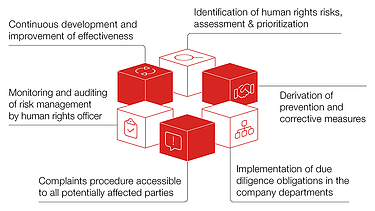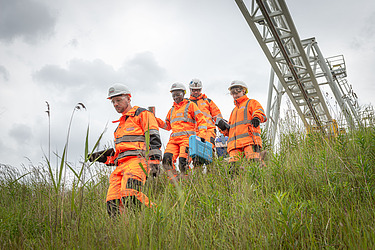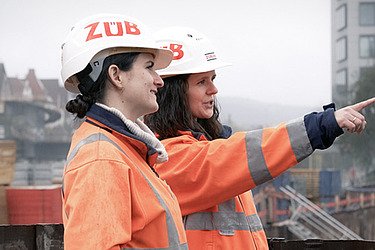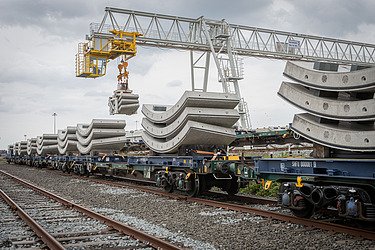Human rights along the value chain
Responsibility for human rights and sustainability along the value chain
As a construction technology group, we are committed to the protection of human rights in our sphere of influence. STRABAG is therefore committed to the following agreements in the area of social sustainability:
- International Bill of Human Rights with the United Nations Universal Declaration of Human Rights
- Fundamental principles of the International Labour Organization (ILO)
- OECD Guidelines for Multinational Enterprises
- UN Guiding Principles on Business and Human Rights
- the UN Women’s Empowerment Principles
- UN Global Compact
As a member of the United Nations Global Compact, STRABAG reports annually in the form of a progress report on its activities to comply with the ten global principles. These cover the areas of human rights, labour standards, environmental protection and the prevention of corruption.
These internationally applicable standards are included as key principles in our Code of Conduct and other Group guidelines.
In addition to the social aspects along the value chain, the ecological aspects of the supply chain are also fundamental to achieving the strategic sustainability goals. Detailed information on this can be found here.
Social compliance management system
The social compliance management system describes a process that aims to implement human rights and environmental due diligence obligations and minimise risks in our own business area and throughout the entire upstream and downstream supply chain.
Our social compliance management system focuses on the following topics:

Human rights officer
To reinforce the importance of human rights throughout the Group and to avoid human rights risks, the role of Human Rights Officer was reassigned in 2023 with modified and expanded tasks and responsibilities. The main tasks of the Human Rights Officer involve monitoring the social compliance management system for its effectiveness and advising the Management Board, which is responsible for the fulfilment of human rights due diligence obligations, on human rights matters. The Human Rights Officer is not bound by instructions and is free to act independently.
Whistleblower platform
Potential human rights violations, such as discrimination at the workplace, can be reported (anonymously, if desired) by employees and external persons via an online whistleblower platform. It is also possible to report an incident directly to a designated contact person (ombudsperson). These reports enable us to follow up on grievances, initiate investigations, take appropriate action and further minimise risks.


